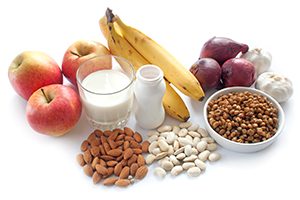 When thinking about bacteria, a good analogy is bugs in your garden. The bad ones eat your cherished plants and can carry diseases, but good bugs like bees and ladybugs exist as well. They help to undo the damage done by the bad bugs.
When thinking about bacteria, a good analogy is bugs in your garden. The bad ones eat your cherished plants and can carry diseases, but good bugs like bees and ladybugs exist as well. They help to undo the damage done by the bad bugs.
With bacteria, it is much the same. The harmful bacteria spreads disease and discomfort—but the good type provides many benefits, especially in your digestive tract.
Your mouth is the important starting point for digestion. As you chew, saliva adds enzymes that begin to break down food into a form your body can use for fuel and maintenance. But if the bacteria of the oral environment are out of balance, you may be at an increased risk for cavities or gum disease.
For some of the people, adding probiotic-rich foods or taking additional supplements may be beneficial. One important study tested the effectiveness of the probiotic Lactobacillus reuteri as a weapon against gum disease. After just two weeks, the patients using the probiotic supplement experienced a significant reduction in dental plaque.
Probiotic milk and other dairy products containing live, beneficial bacteria—yogurt, buttermilk, miso or kefir—are the most recognized foods providing good bacteria for the digestive system.
Probiotic supplements are available as tablets or capsules in most health and natural food stores, supermarkets and pharmacies. The suggested dosage is six billion colony-forming units (CFUs), the standard measurement for probiotics. It’s a good idea to switch-up your source of probiotics regularly, as depending too much on one product may cause other bacterial deficiencies.

